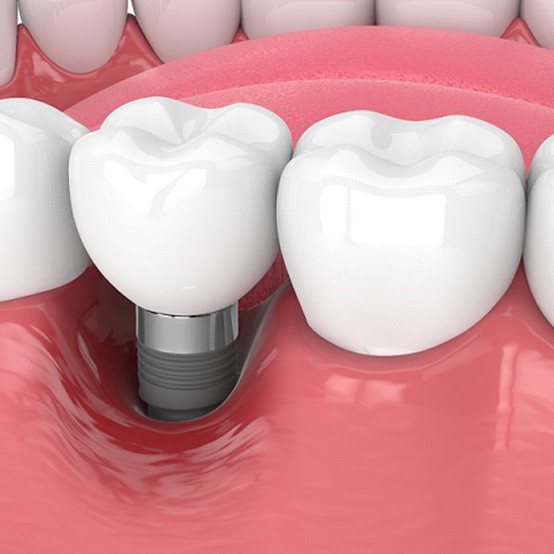Dental Implant Failure & Salvage Eugene
Protecting Your Newly Rebuilt Smile
Dental implants are extremely durable and can often stay in the mouth without problems for 30 years or more; that’s one of the reasons why they have become such a well-regarded tooth replacement option among both dentists and patients. But what if your dental implants happen to fail? The best thing to do is to get in touch with Dr. Paskalev so that he can put together a treatment plan and get your oral health back on track. Call us today if you need to schedule a dental implant salvage appointment in Eugene.
Why Choose College Hill Dental for Dental Implant Salvage?
- Experienced, Knowledgeable Dentist
- Practice That Utilizes the Latest Technology
- Flexible Financing Options Available
Why Do Dental Implants Fail?

Dental implant failure is a rare occurrence, as the procedure has a success rate of around 95%. That said, when implants do fail, it can often be traced to peri-implantitis; this is a type of gum disease that can occur around the implant posts, causing serious damage to your gums and jawbone.
You may also experience issues with your dental implants if:
- The implant posts are not able to join with the bone tissue.
- You suffer physical trauma, such as a sudden blow to the mouth or face.
- You have a weakened immune system, cancer, or certain other health conditions.
Symptoms of Failed Dental Implants

When something goes wrong with your dental implants, there’s a good chance you will be able to tell due to warning signs such as:
- Loose implant posts.
- Pus on the gums.
- Having trouble chewing your food.
- Signs of infection such as bleeding or swelling.
- Pain that doesn’t go away.
You may not always be sure that your dental implants have failed, but if you have any reason to think that they might have, you should get in touch with our team right away.
How Dental Implant Salvage Works

We can create a plan for addressing your dental implant failure after completing a thorough examination of your mouth. Sometimes the salvage process may require treating an infection, while in other cases it may involve helping the area heal after an injury. We’ll be sure to explain the steps that are required as clearly as possible; we’ll also let you know whether or not your dental implants will need to be removed. (If they do, you might be able to have new ones placed after your treatment.)





